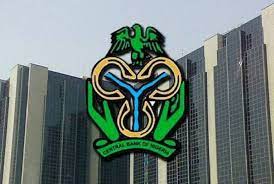Financial experts have expressed support for the proposed recapitalisation of banks, saying it will revamp and further strengthen the nation’s economy.
The respondents, who expressed their views in separate interviews with the News Agency of Nigeria (NAN) in Ibadan on Wednesday, said that the recapitalisation was a step in the right direction.
NAN reports that the Central Bank of Nigeria (CBN) Governor, Mr Olayemi Cardoso had recently hinted of the bank’s plan to implement a new round recapitalisation for deposit money banks.
NAN also reports that the recapitalization policy will require the banks to raise additional capital to meet the demands of the nation’s economy.
An economist, Mr Samson Olalere, who said that CBN had made a good decision, added that the nation could not afford to have a weak banking institution. Olalere said: “So many banks are weak but they are not saying it.
“CBN knows this because they have their records. The earlier they take this decision to strengthen the banking sector, the better for Nigeria.
“When you want to revamp the economy, the best thing is to start from the financial sector; otherwise, you will run into trouble.
“It is important to have a strong financial sector because it is from there that you move into the revamping of the economy.
“If the financial sector is weak and you think you can revamp it through other sectors, it is like starting from the point of failure.”
According to him, consolidating the banking sector will help the government to finance the development of other sectors.
Olalere said without the recapitalisation policy, many Nigerians could lose the money they had deposited in the banks, with its attendant effect on their families and businesses.
He said that the process would, no doubt, lead to acquisitions and mergers of some banks, thus giving the country a stronger financial sector that would be of help to both the public and private sectors.
“We had a problem during the first consolidation of the banking sector because the country didn’t go the whole haul due to compromise here and there,” he said.
Olalere stressed the need for avoiding compromise in the implementation of the policy, adding that it should be carried out without favouring any individual or group within the banking sector.
Another financial expert, Mr Tunji Adepeju, who recalled that the last recapitalisation was around 2004 and 2006, said a fresh one was needed, considering the value of the naira now.
According to him, the recapitalisation will help the banks to support the manufacturing, production and other sectors with more capital.
“This is the time for commercial banks to have more funds to lend to their customers,” he said.
Adepeju, however, said that most new shares might be taken up by institutional investors, as an average Nigerian might not consider purchasing bank shares, given the prevailing economic situation.
He also noted that acquisitions and mergers of banks would likely be seen as options in the recapitalisation exercise.
The financial expert, however, urged the CBN to engage all stakeholders before coming out with the policy and give adequate notice for its implementation.
However, to Mr Sola Famakinwa, the capital adequacy of the banks must be revisited, as many of them might have also been affected by the country’s current economic downturn.
While commending the proposed one-trillion-dollar economy policy of the federal government for the next eight years, he said that the banks must have sufficient capital to finance the system.
“Bigger banks may need to propose consolidation or acquisition of the weaker ones in the system.
“Generally speaking, this policy will strengthen the banking sector and help the country’s economy to grow,” Famakinwa said.























